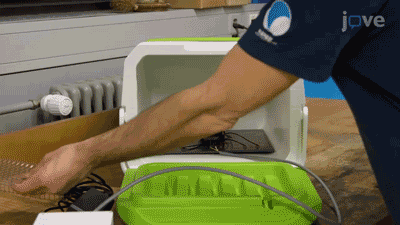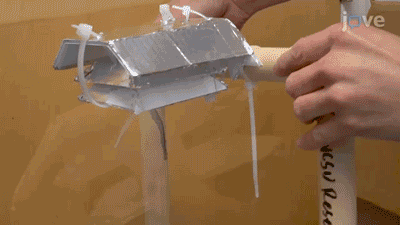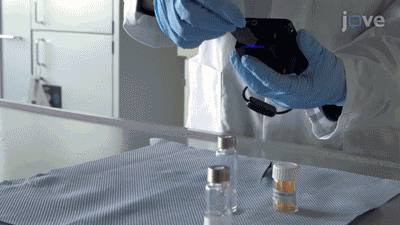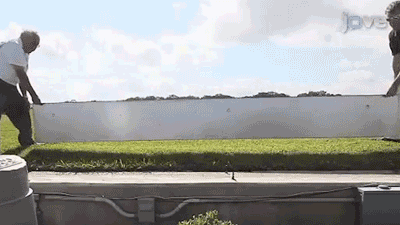It’s hard enough to perform reproducible experiments inside a familiar and completely controlled lab. When having to take the research outside, things get even tougher.
One of our JoVE editors, Dr. Lyndsay Troyer, has faced this very challenge. She says: “During my Ph.D., my group worked on a field project that required us to take continuous soil measurements. This activity involved many locations monitored over the course of months.
“In the lab, you would normally take measurements with fragile, expensive probes that could be easily damaged if left outside. We needed an alternative. So, we built our own robust probes out of platinum metal and wire."
She concludes: “When I started my Ph.D. in chemistry, I never expected how to use a soldering iron!”
Out of Doors, Risking Reproducibility

All science is tough. A 2016 Nature magazine survey of 576 scientists revealed 70% “tried and failed to reproduce another group's experiments.” (This survey included 95 earth and environmental scientists.) Being out of the lab won't make the task of reproducibility easier.
For instance, as Troyer notes, it's impossible to move large and heavy analytical instruments outside to do on-site analysis. Or it can be difficult to preserve samples properly to bring them back to the lab. It’s tough enough on a day with nice weather. "And how often do scientists get to pick the days we research on?" she asks.
A recent JoVE blog by University of Maryland, College Park, librarian Jodi Coalter spells out the situation. “Biology students, including students of entomology, botany, and ecology, often have labs that take place in the very windy, very dirty, sometimes rainy out-of-doors," she writes. "On top of the environmental conditions, there are often many new educational concepts to master, especially in data management.”
Maybe the Library Can Help
Coalter works as a liaison to entomology, geology, and biology students and faculty. To help researchers, her department offers workshops to teach them all about outdoor-based data capture. The tools they leverage include apps such as eBird from the Cornell Lab of Ornithology, and iNaturalist.
“These apps are classic examples of how to set up simple data collection techniques,” she writes. “They are also fantastic tools for introducing new researchers to citizen science and open science concepts.”
Perhaps your university has something similar to the University of Maryland. So, if you are a researcher (especially a graduate student new to data collection techniques) you might see if your library offers programs to assist in information gathering and manipulation techniques.
JoVE’s Mobile Protocols
Maybe you’re looking for ideas to streamline and enhance your outdoor research and make the results more solid and repeatable? Nowadays, the availability of cheap sensors and mobile phone-based systems makes it easier than ever to craft decent field research solutions.
At JoVE, we’ve published of a variety of video articles that illustrate field research creativity. Here are a few examples to help stimulate your own creativity:

- “Construction of a Low-cost Mobile Incubator for Field and Laboratory Use”: As the title indicates, this video article shows how to build an adaptable cheap and movable incubator for testing microbes in drinking water. The researchers used easily accessible materials that operate in a wide range of field conditions — without sacrificing the advantages of higher end lab-based models.

- “Construction of a Compact Low-Cost Radiation Shield for Air-Temperature Sensors in Ecological Field Studies”: This shows how to deploy small, inexpensive sensors in a compact radiation shield. It enables researchers to measure hyper-localized temperature variation.

- “Fluorescent Paper Strips for the Detection of Diesel Adulteration with Smartphone Read-out”: This is slightly different than our other videos exmaples. As mentioned above, it can be challenging to develop transportable ways to conduct field analysis. This video demonstrates a workaround with a cell phone.

- “Design and Construction of an Urban Runoff Research Facility”: The researchers wanted to measure total runoff volumes from simulated home lawns. They created a 1,000 m2 facility containing 24 individual 33.6 m2 field plots to collect runoff subsamples at selected intervals for chemical quantification of simulated home lawns.
There are even more videos available for you to review. Take a look at JoVE today to solve your out-of-the-lab reproducibility challenges.
